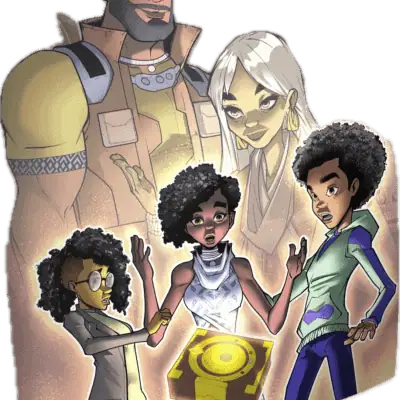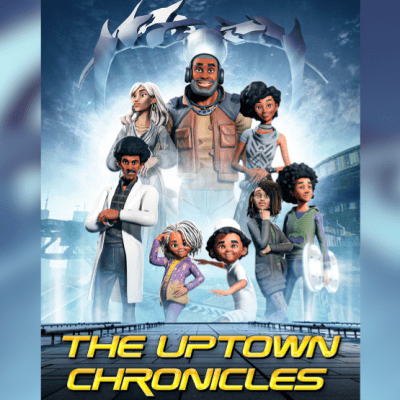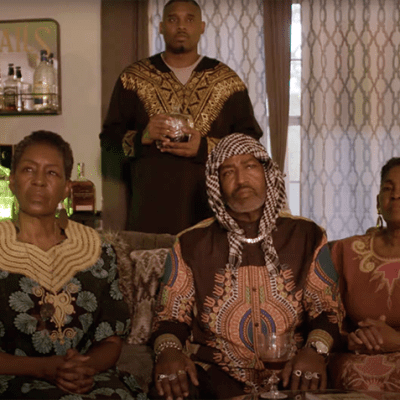
Kevin Hart’s Hartbeat Productions teamed up with Will Packer (Girls Trip) to produce the number one movie in the country, Night School. Written by the media mogul in conjunction with several other screenwriters, the film follows protagonist Teddy (Hart) as he enrolls in Carrie’s (Haddish) class in an effort to earn his GED. Teddy evolves into an overall better human being as he embraces and overcomes the trials and triumphs that ensue and builds affirming relationships with his classmates. While the movie promotes positive messages about perseverance and overcoming insecurities, its reliance on caricatures instead of characters hinders me from having a deep investment in their lives and struggles. I am not interested if the “Hotep” overcomes his distrust of technology, nor am I concerned with whether or not the sexually-repressed housewife finds the courage to demand attention and respect. It’s not that I do not want to care; I cannot. These are not real people, rather one-dimensional representations.
American culture is predicated on binaries. As such, to critique is to condemn. To dislike is to hate. To disagree with something someone says or how they say it is to throw away their entire argument. This understanding, coupled with the recent dispute between Kevin Hart and Katt Williams, has made me very conscious about writing this review. To quickly summarize (although I highly recommend you watch both Katt’s commentary as well as Kev’s response), during a radio interview Williams cited Tiffany Haddish’s success as an example of systematic inequalities in Hollywood that only allow for uncomplicated black comedic expressions to take center stage. Williams acknowledged the work that Haddish has put in on the stand-up stage by stating that she has been working since she was 16, but argued that people could not remember a Haddish stand-up joke because she has not yet proven herself to be able to deliver jokes back-to-back on a stage for an hour. The veteran comedian had other things to say about both Night School stars, some of which are erroneous, others which can be considered problematic and offensive. But in light of the release of this film, this review seeks to engage with Williams’ argument on Hollywood and black representation, and in the process, highlight that – to be horribly cliché – even a broken clock is right twice a day.
Williams, whose career has struggled significantly at the expense of his drug use and run-ins with the law, has been rendered disposable – a broken clock. I do not wholeheartedly agree with how Katt said what he said and completely acknowledge that a lot of his “facts” were indeed not factual. But for every ten things he said, two of them held nuggets of truth – one being his critique of Hollywood and black representation. To be clear, I do not hate either Hart or Haddish. I admire Hart’s business acumen, his relentless grind, and his commitment to putting on other stand-up comedians. I am inspired by Haddish’s ability to use comedy as a way of healing and making sense of her traumatic childhood, most notably her struggles with accepting and caring for her mentally ill mother. Furthermore, I can understand why Haddish and Hart would be upset at what Williams said. However, Williams’ aforementioned claim can be partially substantiated by Night School, the number one movie in America.
Night School relies on caricatures that land awfully close to stereotypes. Using stereotypes can be effective as they are a common language shared by Americans across race, class, and ethnicity. However, when using them you must add nuance/complication otherwise you run the risk of reifying them. Hart’s character, Teddy, is somewhat reminiscent of the Zip Coon. In attempts to maintain a romantic relationship with a woman who is out of his league, Teddy acquires a fancy car, clothes, and all the material accouterments of success to overcompensate for his insecurity about not having a high school diploma. The film relies on malapropisms from his character and overall simple slapstick to generate laughter. Carrie (Haddish) can be likened to that figure of the Sapphire. As a teacher, her investment in her students is genuine and she really wants to see Teddy succeed. She is not against using verbal and physical violence to get through to Teddy and to call out the white principal’s subtle racism.
Again, to be clear, I am NOT attempting to argue that Hart and Haddish’s caricatures are demeaning, although I can see how one could take up that argument. They are, however, in my opinion, terribly uninteresting and – to Katt’s point – restrictive. We have seen innumerable renditions of these caricatures. Thus, nothing about what they do or say surprises me; and when you have seen the character time and time again, you can see the joke coming and it doesn’t make you laugh. It only makes sense that the troubled teen decides to straighten herself out, lest she ends up like the old “losers” in her night class. Of course, the incarcerated student is attacked by fellow inmates while Skyping in for class.
To Katt’s point, there is something about these simplified representations that seem to resonate with the masses – translation, the white majority. You can only gain mass “success” if they are consuming your work. The question becomes – is simplification the only way to ensure significant financial success? Looking at Pryor, Eddie Murphy, and movies like Sorry to Bother You, I argue, no.
It’s okay to want to make and laugh at stupid shit. It’s comforting; it really is. Unfortunately, the entertainment industry seems to prefer these simple portrayals because they are easy to consume. They are safe. They are familiar. Thus, they become the type of gold standard for Hollywood and in the process make it really hard for other portrayals of blackness to succeed.








